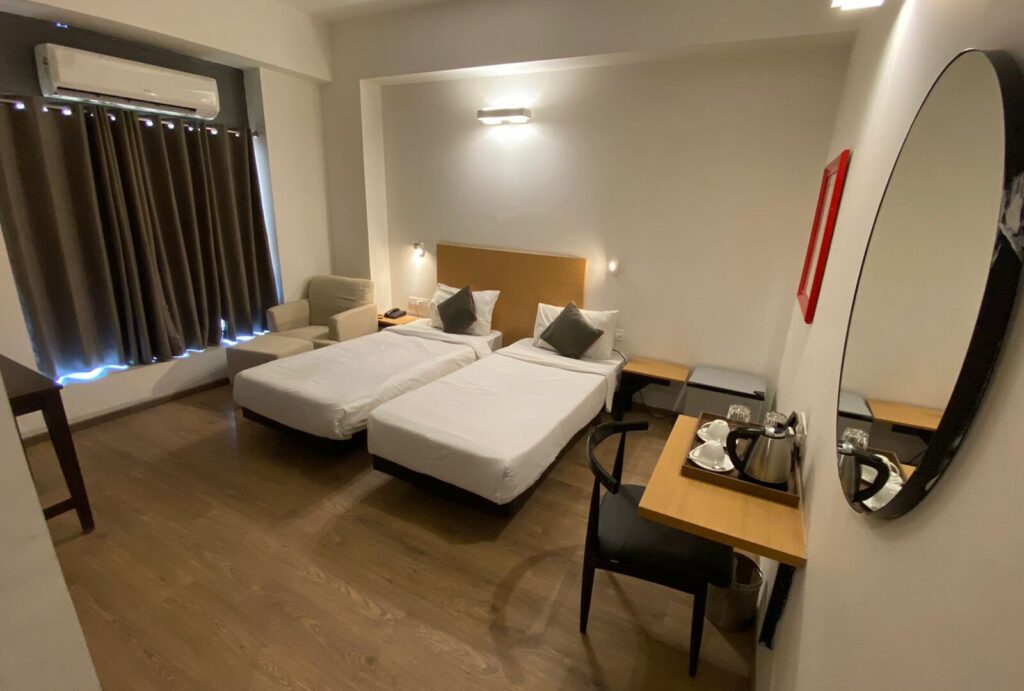
Inflation, labour issues, and rising cost to meet the needs of an increasingly tech-savvy and sophisticated guest journey. Is there anything more pressing on the minds of hoteliers, preventing them from having sleepless nights thinking about how to bring down their hotel`s cost and keep their business afloat? With an ever-increasing amount of cost-associated challenges in our industry, this topic couldn’t have been addressed at a better time.
From our perspective as a hotel management company, we see both challenges as well as opportunities for hoteliers. The key is taking action in an adequate and timely manner, prioritising the right initiatives that truly make a difference. Cost can always be reduced, but how does it impact your day-to-day operations, and how does this reflect on your guest experience?
Want to know how to turn cost issues into a competitive advantage? Keep reading our article on how to approach this multi-faceted issue.
Article Summary:
What is Cost Control in a Hotel?
Why is Cost Control Is Important for Hotels
How can Hotels Cut Costs?: 10 Strategies for Hotels to Reduce Costs
What is Cost Control in a Hotel?
When we talk about cost control in the hotel industry, we typically refer to the management of expenses and the optimization of resources. By diligently managing costs, hotels can ensure profitability and financial sustainability. Cost control challenges can vary from hotel to hotel, depending on the market segment, location, and star classification, but most hotels face similar issues. As indicated by a recent study by Statista, hoteliers highlight the wider economic situation as the next biggest challenge (48%), followed by staff acquisition and retention (43%) and cost of staff (42)%.
Before digging further into why cost control is important for hotels, it is important to follow a structured approach with clearly defined steps that help to make well-informed decisions:
Identifying Expenses: All expenses incurred by the hotel are identified and categorized.
Establishing Benchmarks: Allows you to compare results vs. other similar hotels.
Analysing Expenses: Identifying outliers that require further review.
Implementing Cost-saving Measures: Based on the analysis, cost-saving measures are implemented in the areas where costs can be reduced without affecting the quality of service.
Monitoring Expenses: The hotel’s expenses are continuously monitored to ensure that the cost-saving measures are effective.
Why is Cost Control so Important for Hotels?
It´s clear that optimal control of cost helps hotels to run a profitable and sustainable business model. However, there are many aspects that should be considered to obtain the best results.
In summary, cost control is important in hotels for several reasons:
Profitability: Hotels are businesses and, like any other business, their ultimate goal is to make a profit. By controlling costs, hotels can reduce their expenses and increase their bottom line.
Competitive Advantage: Cost control can also provide hotels with a competitive advantage. By reducing costs, hotels can offer better rates to guests, enabling them to better position themselves to budget-conscious travellers. This can help hotels attract more guests and compete more effectively with other hotels in the area.
Sustainability: When mitigating waste and conserving resources, hotels can reduce their environmental impact and operate in a more sustainable manner. This can be attractive to guests who are environmentally conscious and may choose to stay at hotels that prioritize sustainability.
Operational Efficiency: By eliminating unnecessary expenses and streamlining processes, hotels can improve their operational efficiency and provide better service to guests.
Clearly, cost control is an important aspect of the hotel and hospitality management industry that enables hotels to gain a competitive edge over their competitors.